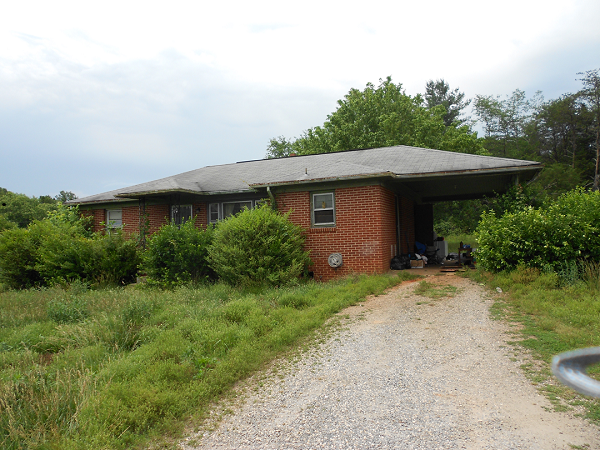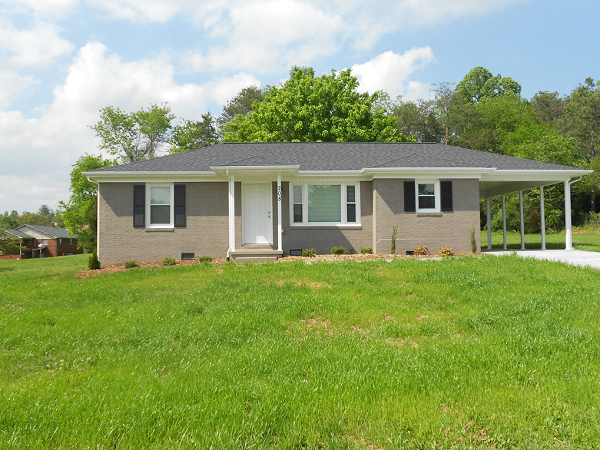Top-Level Takeaways
-
SECU created a real estate CUSO in 2012 to rehab, rent, and sell foreclosures in its residential portfolio.
-
The mission is to protect the credit union’s investment in the properties while providing affordable housing and diminishing neighborhood decay.
In the aftermath of the Great Recession, State Employees’ Credit Union ($45.2B, Raleigh, NC) created a CUSO that uses the resources and ethos of the nation’s second-largest credit union to turn foreclosures into single-family rentals and owner-occupied homes.
The property management CUSO is named SECU*RE and its mission is to take SECU’s real estate owned (REO) properties, rehab them, and then rent or sell them. The result is less loss to the credit union itself and, just as critically, more affordable housing and less neighborhood decay in the communities in which those houses are located.
As of Jan. 1, SECU*RE owned 1,546 properties with a market value of $221 million. And as of July 1, it was managing 1,302 occupied rental units.
Here is more about the CUSO from Mark Kretzschmar, an 18-year employee at SECU who has been senior vice president of property management governance for nearly three years.
Why did the credit union create SECU*RE?

Mark Kretzschmar: SECU doesn’t sell the mortgages it originates. Because of poor economic conditions brought about by the Great Recession, SECU faced higher-than-normal foreclosure volume. There also weren’t many potential buyers for our REO properties. As is typically the case with foreclosed homes, properties also weren’t always in the best condition.
So, instead of being able to sell a foreclosed property for 90% of the property’s appraised value, which was typical before the recession, we were forced sometimes to reduce list prices to as low as 50-60% of appraised value.
This served as the genesis behind the creation of the CUSO on July 17, 2012.
What was happening at SECU and in North Carolina’s housing market at the time?
MK: SECU was seeing reduced recoveries and increased losses, and we also were seeing a vicious cycle that was further perpetuating the decline in residential property values across North Carolina.
We were also hearing anecdotally from our members and staff that some of the foreclosed properties we were selling were being purchased by investors who were simply turning the properties into rentals without investing much, if anything, into ensuring the homes were safe or in livable condition.
To combat this multi-pronged issue, former SECU president Jim Blaine envisioned a different approach to handling foreclosed properties. His idea was to create a mechanism whereby SECU, through the property management CUSO, could invest in turning foreclosed homes, when practical, into safe and affordable rental properties for the community.


How has the pandemic affected your CUSO operations?
MK: In March, at the beginning of the pandemic, SECU*RE elected to voluntarily suspend all evictions as well as any late rent charges. Tenants have, overwhelmingly, continued to pay their rent as evidenced by the fact that almost 98% of SECU*RE’s tenants are either current or less than 30 days past due on their rent. We did suspend marketing new rental properties during April and May but have since resumed and seen tremendous demand for rental housing.
How did you structure the CUSO, and how does it operate?
MK: SECU*RE has 20 full-time employees, including 14 in back-office roles. The other six are located regionally across North Carolina and are responsible for managing the renovation projects on properties acquired by SECU*RE.
SECU*RE also uses a number of dual-role SECU/SECU*RE employees located across the state in SECU branches. These are lending officers, branch managers, and financial services representatives who, in addition to their normal SECU responsibilities, help with such tasks as showing available rental properties, handling tenant repairs, or listing properties for sale.
How do you handle the real estate brokerage part of all this?
MK: SECU*RE is not just a property management company, it’s also a real estate firm. We’ve developed a network of 57 licensed real estate brokers who act in a dual role for SECU and SECU*RE. These brokers work in SECU branches in various roles such as branch managers, lending officers, etc. but volunteered to go through the prerequisite training and testing to become licensed real estate brokers in North Carolina.
When SECU*RE elects to sell a property, we look first to our internal real estate brokers to list the property for sale on the local MLS. Currently, approximately 90% of the properties we elect to sell are listed internally.
SECU*RE began using internal real estate brokers to list properties for sale back in 2017 and, as of June 30 this year, those brokers have listed and sold more than 350 properties for a total transaction volume of approximately $65 million.
How do you decide between renting or selling?
MK: Our regional construction project managers evaluate each property prior to beginning renovations to determine whether to rent or sell the property post-renovation. They consult with the local SECU branch to get a feel for the real estate market. Large properties or properties in extremely remote areas are more often renovated to be sold instead of rented. We’ve also elected not to rent properties with pools due to liability concerns.
SECU*RE renovates and offers for rental more than 75% of the properties its acquires. The rest are typically renovated and then sold.
How is the current market influencing your decision to sell or rent?
MK: Anytime a tenant elects to end their lease and move out of a SECU*RE property, we evaluate it determine whether the market value supports selling the home. Given the relative strength of the housing market, we’ve increasingly found selling properties has become a viable option.
Over the past fiscal year, SECU*RE has sold roughly as many properties as we’ve acquired. Many of the properties we’ve sold in the past year were originally acquired by SECU*RE earlier this decade, renovated, rented for a few years, and are now able to be sold for a profit.
The cash generated from the sales of real estate is reinvested into the CUSO and used to fund the purchase and renovation of future properties.
Do you rent them back to the people who have been foreclosed?
MK: To comply with fair housing laws, SECU*RE rents properties to the first qualified applicant who applies to rent once a property becomes available to rent. We are not aware of any situation, currently, where a tenant in a property was the former foreclosed borrower.
Click here to see the SECU*RE rental application.
How does the CUSO’s activity fit into your mission?
MK: SECU operates under the working principle of ;Do the Right Thing. With 269 branches across North Carolina, SECU has a vested interested in almost every community across our state.
We’re not just a financial institution, we’re a neighbor to many of our members. When we, unfortunately, have to acquire a property via foreclosure, our members expect we will do the right thing and invest the time and effort into making sure we bring the property into a safe and livable condition.
SECU*RE helps SECU meet that objective.
This interview was edited and condensed.
